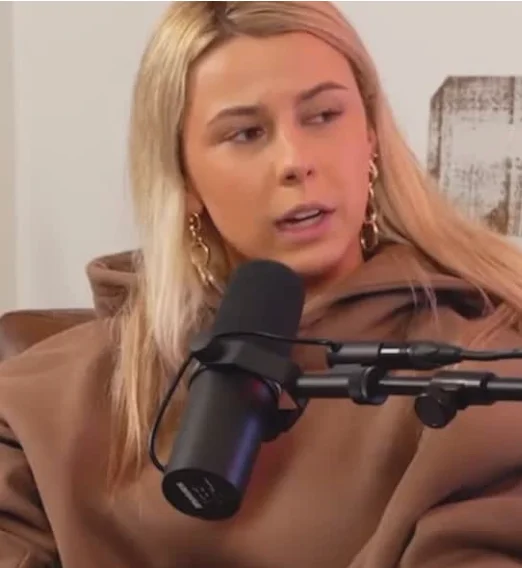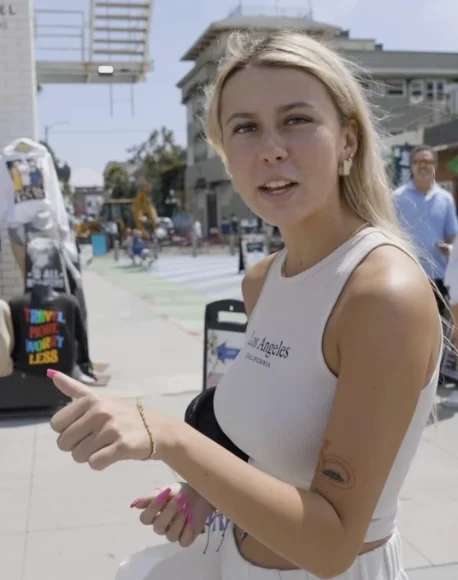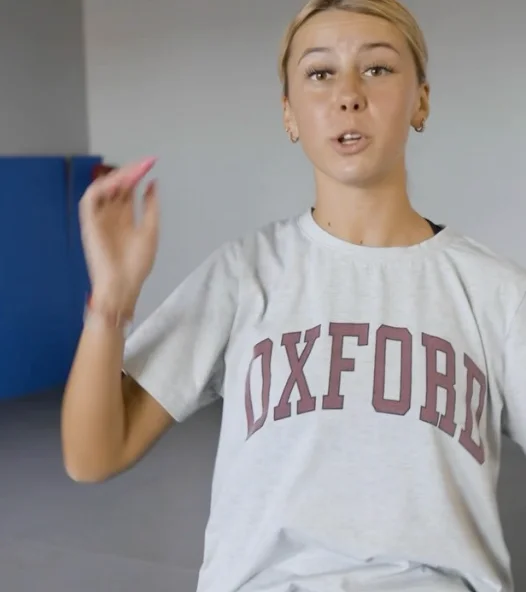In the world of digital finance, few stories have captured attention quite like the rise and fall of Haliey Welch, famously known as the “Hawk Tuah Girl.”
Welch, who first became an internet sensation through a viral video, quickly leveraged her fame to launch various ventures, including a cryptocurrency project that would later spark intense controversy.
Her journey to stardom began in June 2024, when a spontaneous street interview showcased her charm and wit, propelling her to viral fame.

This sudden popularity led to the launch of her podcast, “Talk Tuah,” which climbed Spotify’s charts, ranking as one of the top five podcasts shortly after its release.
In November, she expanded her brand with “Pookie Tools,” an AI-powered dating advice app that cemented her status as a multifaceted influencer.
By December, Welch had set her sights on the booming cryptocurrency market, introducing the $HAWK token, a memecoin launched on the Solana blockchain.

The $HAWK token was heavily promoted across Welch’s social media platforms, drawing her vast fanbase into the world of digital assets.
Within minutes of its launch on December 4, the token’s market capitalization skyrocketed to nearly $500 million, a testament to Welch’s influence and the public’s trust in her brand.
The excitement surrounding the token’s launch was palpable, with fans eager to invest in what seemed like a groundbreaking opportunity.
However, the enthusiasm would soon be replaced by shock and disbelief as the token’s value experienced a catastrophic decline.

In less than 20 minutes, the token’s market cap plummeted by over 90%, falling from $490 million to just $41 million.
Many investors, some of whom had poured their life savings into the project, found themselves holding coins that were now worth next to nothing.
The rapid collapse led to allegations of a “pump and dump” scheme, a tactic where creators inflate a cryptocurrency’s value through hype before selling off their holdings, leaving investors with worthless tokens.
Critics accused Welch and her team of exploiting the trust of her fans for financial gain.

The aftermath of the collapse was marked by outrage, with investors demanding accountability from those involved in the $HAWK project.
Legal action soon followed, with a lawsuit filed on December 19 against the entities responsible for the token’s creation and promotion.
The lawsuit named Tuah The Moon Foundation, which managed the token’s finances; OverHere Ltd., the company behind the token; and its executive, Clinton So.
Promoter Alex Larson Schultz was also included in the case, with allegations of unlawful promotion and the sale of unregistered securities.

While Welch played a prominent role in promoting the token, she was notably absent from the list of defendants in the lawsuit.
Her association with the project, however, has placed her under intense scrutiny, with critics arguing that her involvement gave the token undue credibility.
Amid the growing controversy, Welch initially disappeared from public view, halting her social media activity and leaving fans speculating about her role in the project’s downfall.
Weeks passed without updates, fueling rumors and raising questions about her next move.

Finally, Welch broke her silence, reappearing to address the situation and express her willingness to cooperate with ongoing investigations.
In a statement, she acknowledged the seriousness of the matter, stating, “I take this situation extremely seriously and want to address my fans, the investors who have been affected, and the broader community.”
Welch pledged her support to those impacted by the token’s collapse, committing to assist the legal team representing the affected investors.
She added, “I am fully cooperating with and am committed to assisting the legal team representing the individuals impacted, as well as to help uncover the truth, hold the responsible parties accountable, and resolve this matter.”

The full extent of Welch’s involvement and responsibility remains unclear, as legal proceedings continue to unfold.
The $HAWK token debacle serves as a stark reminder of the risks associated with cryptocurrency investments and the ethical considerations influencers must weigh when promoting financial products.
As the story develops, questions linger about the accountability of all parties involved and the impact of Welch’s actions on her career and reputation.
As we await the case’s outcome, the fate of the investors and the credibility of digital finance remain uncertain.
Featured Image Credit: (Instagram/ @hay_welch)


